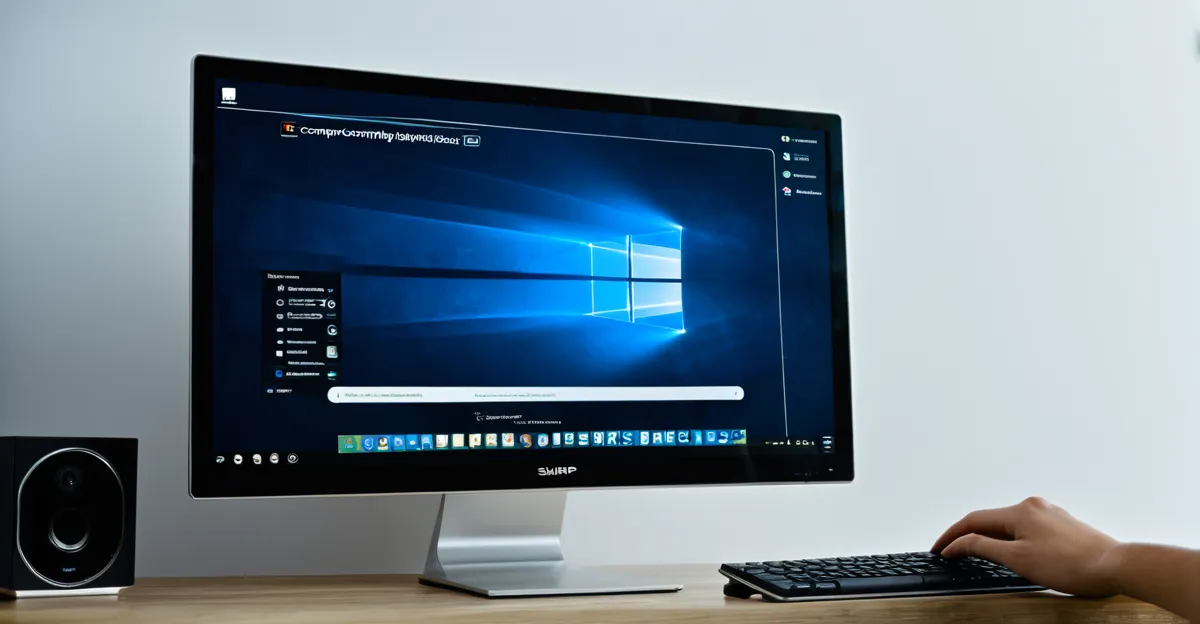Overview of UK Computing Hardware’s Impact on Smart Home Devices
The UK computing hardware sector plays a pivotal role in advancing smart home devices, driving innovation through cutting-edge components and design. This integration is critical as the UK technology sector continues to bolster the development and adoption of connected home solutions such as smart thermostats, security systems, and voice assistants.
In the UK, key factors fueling this growth include the availability of advanced semiconductor fabrication, a skilled engineering workforce, and strong industry-academic partnerships. These create a fertile environment for hardware manufacturers to innovate and supply components that enhance device performance, energy efficiency, and connectivity standards.
This might interest you : How Can Recent Advancements in UK Computing Hardware Improve Everyday Technology?
The current market landscape illustrates substantial UK contributions. Beyond just importing, the sector actively shapes hardware standards that influence product interoperability and security within smart homes globally. UK computing hardware companies provide essential chips and modules enabling devices to process data locally while supporting cloud integration. This dual approach addresses consumer demand for responsiveness and privacy.
By leveraging its hardware expertise, the UK technology sector strengthens its position as a leader in the expanding smart home market, pushing boundaries on device intelligence and seamless user experiences.
Also read : How Can Recent Trends in UK Computing Hardware Influence Future Innovations?
Leading UK Companies Innovating in Smart Home Hardware
Several UK hardware companies have emerged as pioneers in the smart home market, driving technology innovation to enhance connectivity and user experience. One standout firm is a company specializing in energy-efficient smart thermostats, which integrates advanced sensors and AI algorithms to optimize home heating automatically. Their product exemplifies the UK’s growing emphasis on combining sustainability with convenience.
Another key player develops modular smart home hubs that serve as digital nerve centers, allowing seamless control of lighting, security, and entertainment systems. This smart home brand has collaborated with global technology giants to adopt open standards, ensuring broad device compatibility and future-proof functionality.
Additionally, security-focused UK companies have introduced cutting-edge smart cameras and alarm systems leveraging machine learning for real-time threat detection. These efforts highlight the UK’s ability to merge high-tech innovation with practical applications tailored for everyday living.
These companies showcase how UK hardware innovators are shaping the future of connected homes by emphasizing interoperability, energy efficiency, and user-friendly design. Their collaborations with international firms further enhance their contributions, positioning the UK as a hub for smart home brands delivering globally impactful solutions.
Contributions of UK Manufacturing to Smart Home Device Hardware
UK manufacturing plays a pivotal role in the production of essential hardware components for smart home devices. With a strong focus on device manufacturing and embedded systems, British companies contribute significantly to the quality and innovation of these technologies. The local expertise ensures that processors, circuit boards, and custom electronic modules meet high standards for reliability and performance.
Manufacturers in the UK specialize in fabricating various elements critical to smart home functionality. These include custom-designed processors that optimize device speed and energy efficiency, as well as highly integrated boards tailored to specific applications like security sensors and automation hubs. By maintaining control over this hardware production, UK firms help keep costs competitive and reduce supply chain uncertainties.
The influence of UK electronics extends beyond components; it fosters tighter collaboration between designers and manufacturing teams, enhancing the seamless integration of hardware with smart home software. This synergy boosts device durability and responsiveness, ultimately improving the user experience. Such local manufacturing capabilities position the UK as a key player in the fast-evolving smart home market, combining innovation with practical engineering excellence.
British Innovations in Sensors, Processors, and IoT Platforms
British innovation has played a pivotal role in advancing sensors, processors, and IoT platforms, shaping the future of smart technology. Notably, UK engineers have developed highly sensitive sensors capable of detecting subtle environmental changes. These sensors are integral to smart home systems, enabling accurate monitoring of temperature, humidity, and even air quality. Alongside sensors, sophisticated processors designed in the UK efficiently handle vast data streams from multiple devices, ensuring real-time responsiveness without compromising energy efficiency.
IoT embedded platforms designed in Britain seamlessly integrate these sensors and processors. They form the backbone of smart home automation, managing everything from security systems to energy optimization. These platforms support low-latency communication protocols and robust cybersecurity measures to protect user data.
For example, British innovations power security solutions that detect unusual activity through sensor networks, triggering processors to analyze and initiate alerts instantly. Similarly, UK-developed energy management systems use sensor feedback to optimize heating and lighting, enhancing sustainability. The convergence of British expertise in sensors, processors, and IoT platforms delivers tangible benefits in daily life, making smart homes safer, greener, and more user-friendly.
Partnerships and Industry Collaborations Shaping the Market
In the UK, industry collaboration is fueling rapid advancements in the smart home ecosystem. Leading hardware providers often form partnerships with device manufacturers to integrate diverse technologies into cohesive solutions. These alliances not only accelerate product development but also enhance compatibility across devices, benefiting consumers seeking interconnected smart home experiences.
Research institutions play a pivotal role by collaborating with private companies through public-private partnerships. Such collaborations provide shared access to expertise, funding, and cutting-edge facilities, enabling innovative breakthroughs in smart home technology. This synergy helps drive the creation of more sophisticated, energy-efficient, and user-friendly products.
Shared R&D efforts stand out as a key outcome of these partnerships. Collaborative research accelerates the identification of emerging trends, informs design improvements, and delivers enhanced device capabilities. For example, joint projects focused on seamless integration and improved security features have a significant impact on shaping a future-proof smart home ecosystem.
Together, these strategic collaborations establish a robust framework that supports ongoing innovation and expansion in the UK’s smart home market, directly benefiting both manufacturers and end-users.
Market Trends and Future Prospects for UK Computing Hardware in Smart Homes
The UK smart home growth market is rapidly advancing, driven by increasing consumer demand for seamless automation and enhanced connectivity. Current market trends indicate a surge in adoption of AI-powered devices and edge computing components that bring faster, more reliable processing within smart homes. This shift not only reduces dependency on cloud services but also enhances privacy—a key concern among UK users.
Investment in the sector has ramped up considerably, with a focus on developing energy-efficient, interoperable hardware platforms. Government policies encouraging sustainable technology and IoT standardization are shaping the market’s trajectory positively. Regulatory frameworks are evolving to support data protection, which boosts consumer confidence in emerging smart home devices.
Looking ahead, experts predict stronger integration of future prospects such as embedded AI chips, sensor fusion technologies, and decentralized data processing. This will empower UK smart home environments to be more responsive and adaptive, improving daily living experiences. Companies focusing on scalable, secure hardware solutions will likely lead the market, underlining the importance of innovation aligned with user needs and policy developments in the UK smart home growth landscape.





